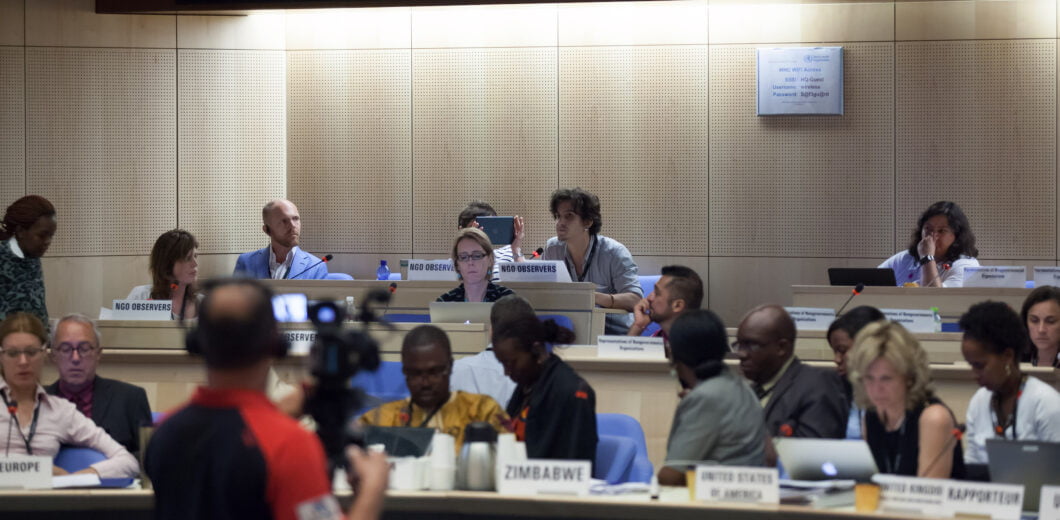This is a critical moment and we all feel it. We are reaching the end of the MDGs with their specific focus on reversing the HIV epidemic and ensuring universal access to treatment. We are entering the era of the SDGs with their broader ambition and inspiring focus on addressing structural inequalities in our global relationships – but which lack the deep attention to HIV that we have appreciated in the MDGs.
As we Fast Track the HIV response, fast tracking human rights is essential. This includes the rights to health, to justice, to equal treatment under the law, to adequate income, and to development for all people without discrimination.
The NGO Delegation would like to highlight a few key issues for civil society that will make the difference between success and failure.
a. HIV prevention is essential. We must have comprehensive sexuality education that teaches all young people the skills to care for their bodies, their sexual and reproductive choices and well-being, and their relationships with their partners.
b. All people must have protections for sexual and reproductive health and rights. This includes rights of people with HIV to have children– and forcible sterilization of women with HIV must end.
c. We must address social norms, and end the violence and threats of violence that uphold these norms, that teach girls, women, and LGBT people – as well as racial or ethnic minorities, indigenous people, and others – that they must learn to accept mistreatment as the price for their existence.
d. It is long past time for national legal systems to provide equal protection for all people – and to remove laws that unfairly target people living with HIV and LGBT people for criminal penalties.
e. And, of course, we must finally meet the challenge of universal access to prevention and treatment for all. This mean fighting back against pharmaceutical pricing regimes, intellectual property barriers, and trade deals that make medications so costly that they are unattainable.
But that is not enough.
f. We must put all our energies into addressing HIV-related stigma and discrimination which remain pernicious and persistent globally. It is the fear of mistreatment, rejection, and isolation from other people – all deeply damaging experiences — that stops people from accessing HIV testing and treatment even when these services are available.
How do we respond to these issues? Now as much as ever, we need to fully fund the work of civil society and to invest in capacity building for civil society organizations. Civil society holds the experience, connections, information, and urgency required to fast track the response in every country.
As we move forward into this new era, we thank the Joint Programme for leading the way in partnership with civil society.
